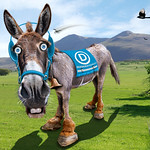alph Nader has always been one of my most admired political/environmentalist figures. I have always defended his right to run as a third party presidential candidate in the 2000 election despite being blamed for the Bush victory with its dire consequences. Today, we have a similar situation in next year's Democratic primaries where the many candidates of varying progressive persuasion hope to displace Trump, if he is still around by then, or the presumed heir to his position.
In the highly crucial elections of 2020, which could be an historical turning point in American politics - and in American life - the choice between a revolutionary progressive path needed to reverse the blatant decline in our democratic and social values, or a paralyzing status quo, may be determined. Of the twenty-plus democratic candidates, several present fairly comprehensive progressive programs. Others emphasize specific issues while some represent traditional democratic policy. We eagerly await the forthcoming debates to sort out the most promising candidates.
A classic debate is usually about one issue, although each side may be represented by a team. A political debate is best conducted between two persons, such as in the final election campaign. The problem is that, with so many candidates in the Democratic preliminary, the discussion - in the debates and in the media - can be very confusing and inconclusive. The worst outcome would be that the many progressive candidates will cancel each other out, leaving the field to the few conventional, status quo candidate(s) backed by the democratic establishment.
Perhaps after the first debates, and during the lengthy campaign, several of the candidates will drop out. But to counteract the wealth and influence of the republican establishment, it is imperative to have only the strongest progressive opposing them. If the marginal democratic candidates truly have the interests of the democratic constituency in mind rather than their own agenda, they would eventually throw their support behind the most promising progressive candidates before the primary election.






